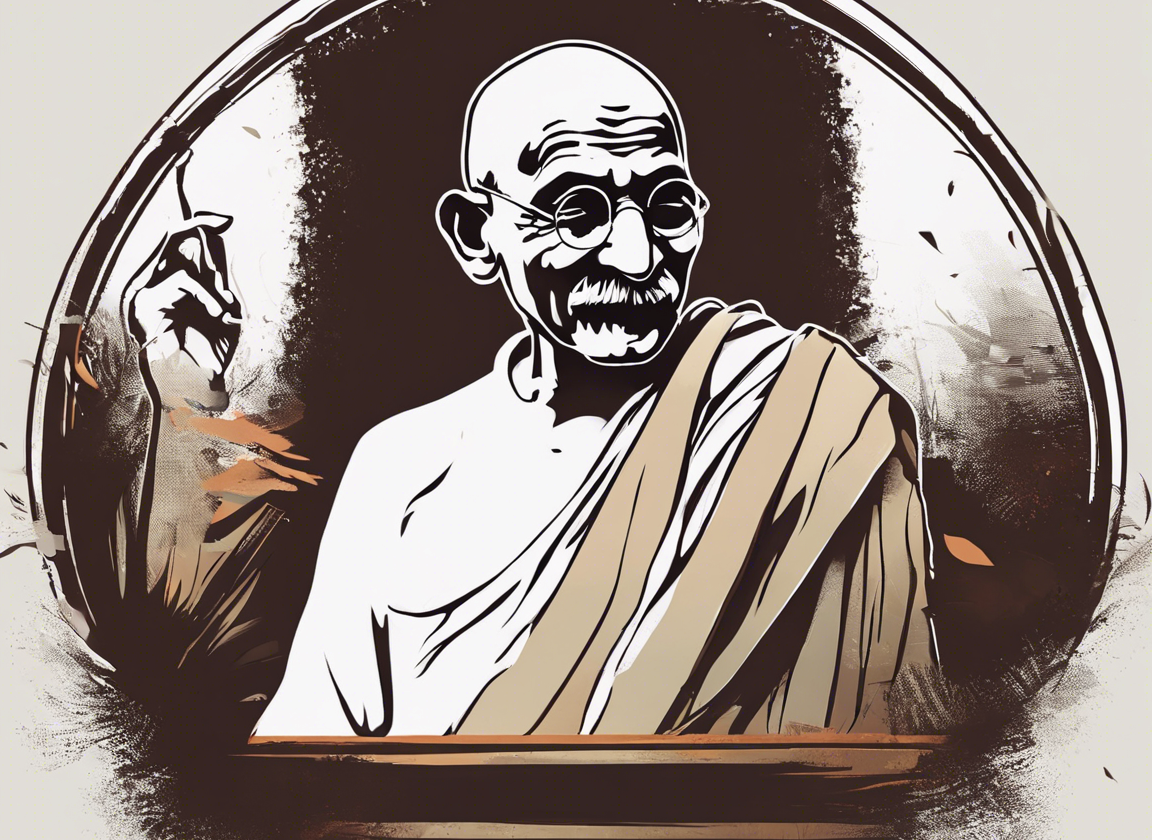Embracing the Legacy: Mahatma Gandhi Jayanti Speech

Introduction
Mahatma Gandhi, also known as Gandhiji and the Father of the Nation in India, is revered worldwide for his philosophy of non-violence and his role in India’s freedom struggle against British colonial rule. His birthday, October 2nd, is celebrated as Gandhi Jayanti across India, and his principles continue to inspire people globally to fight for justice, equality, and peace. In this article, we delve into the significance of Mahatma Gandhi Jayanti and how his teachings remain relevant in today’s world.
The Legacy of Mahatma Gandhi
Mahatma Gandhi’s impact on the world is immense and enduring. His principle of Ahimsa (non-violence), Satyagraha (truth-force), and Sarvodaya (upliftment of all) guide individuals and nations even today. Gandhiji’s ideology was instrumental not only in India’s independence movement but also inspired civil rights movements worldwide, including those led by Martin Luther King Jr. in the United States and Nelson Mandela in South Africa.
Gandhi’s Philosophy of Non-violence
One of the key tenets of Mahatma Gandhi’s philosophy was non-violence. According to Gandhiji, non-violence does not mean cowardice or submission but is a powerful force that can transform individuals and societies. Through ahimsa, Gandhi showed that peaceful resistance can bring about real change without resorting to violence. His famous words, “An eye for an eye makes the whole world blind,” encapsulate the essence of his belief in non-violence.
Satyagraha: The Power of Truth
Another cornerstone of Gandhi’s philosophy was Satyagraha, which means truth-force or soul-force. Gandhiji believed that truth has the power to conquer injustice and oppression. Satyagraha involves passive resistance and civil disobedience as tools to fight against injustice while upholding the truth. By practicing Satyagraha, Mahatma Gandhi demonstrated how moral courage and truth can bring about significant social and political change.
Relevance of Gandhi’s Teachings Today
In today’s world, marked by conflict, injustice, and inequality, Mahatma Gandhi’s teachings hold profound relevance. The principles of non-violence, truth, and social justice can guide individuals and nations in resolving conflicts peacefully, upholding human rights, and promoting sustainable development. Gandhiji’s emphasis on simplicity, self-reliance, and community living also offer sustainable solutions to contemporary challenges such as climate change and consumerism.
Gandhi Jayanti Celebrations
Gandhi Jayanti is celebrated with great reverence and enthusiasm across India and in many parts of the world. On this day, political leaders, social activists, and ordinary citizens pay tribute to Mahatma Gandhi by organizing prayer meetings, cultural events, educational programs, and peace marches. Spinning the Charkha (spinning wheel), a symbol of self-reliance and economic independence promoted by Gandhiji, is also a common feature of Gandhi Jayanti celebrations.
Inspiring Quotes by Mahatma Gandhi
- “Be the change that you wish to see in the world.”
- “The best way to find yourself is to lose yourself in the service of others.”
- “An ounce of practice is worth more than tons of preaching.”
- “The future depends on what you do today.”
- “In a gentle way, you can shake the world.”
Conclusion
As we commemorate Mahatma Gandhi Jayanti, let us reflect on the timeless teachings of this visionary leader and strive to embody his principles of non-violence, truth, and social justice in our lives. By following in the footsteps of Gandhiji, we can work towards creating a world that is more peaceful, just, and sustainable for present and future generations.
FAQs
- What is the significance of Mahatma Gandhi Jayanti?
-
Mahatma Gandhi Jayanti is celebrated to honor the birth anniversary of Mahatma Gandhi, the Father of the Nation in India, and to promote his principles of non-violence, truth, and social justice.
-
How is Gandhi Jayanti celebrated in India?
-
Gandhi Jayanti is celebrated with prayer meetings, cultural events, educational programs, peace marches, and by spinning the Charkha, a symbol of self-reliance.
-
What are some of Mahatma Gandhi’s famous quotes?
-
Some of Mahatma Gandhi’s famous quotes include “Be the change that you wish to see in the world,” “The best way to find yourself is to lose yourself in the service of others,” and “In a gentle way, you can shake the world.”
-
How did Mahatma Gandhi’s philosophy influence other leaders?
-
Mahatma Gandhi’s philosophy of non-violence and Satyagraha influenced leaders like Martin Luther King Jr. in the United States and Nelson Mandela in South Africa, who used similar methods in their struggles for civil rights and freedom.
-
Why is Mahatma Gandhi considered the Father of the Nation in India?
- Mahatma Gandhi is considered the Father of the Nation in India for his pivotal role in India’s independence movement and his promotion of non-violence, truth, and social justice as guiding principles for the nation.